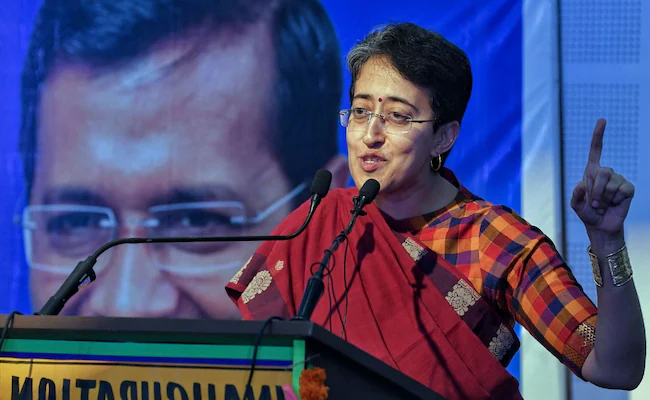GG News Bureau
New Delhi, 21st Sept. The appointment of Atishi as the new Chief Minister of Delhi has sparked significant discussion, particularly among BJP leaders who have been vocal in their skepticism. While they extended their congratulations, they simultaneously asserted that this transition is merely a superficial change, claiming that the underlying issues plaguing the AAP government remain unchanged.
BJP President Virendra Sachdeva stated, “She has been unsuccessful as a minister and the people of Delhi have no expectations from her government.” This assertion reflects a broader sentiment among critics of the AAP administration, who worry that corruption and chaos will persist under her leadership.
In her first remarks post-oath, Atishi accused the BJP of hatching a “conspiracy” against her predecessor, Arvind Kejriwal, urging the people of Delhi to ensure his return after the upcoming Assembly polls. This defensive posture may rally her party’s base but risks alienating voters seeking constructive governance rather than blame-shifting.
BJP MP Manoj Tiwari emphasized the need for immediate action, stating, “I expect her to focus on the dilapidated civic infrastructure in the city instead of indulging in a blame game.” His call for repairs and accountability underscores the pressing concerns of Delhi’s citizens, reminding political leaders that effective governance must prioritize tangible solutions.
Further amplifying these concerns, BJP MP Ramvir Singh Bidhuri urged Atishi to take steps that would provide relief to the people, including “reducing electricity and water bills.” These comments highlight a consensus among many that the AAP government has a lot of ground to cover in addressing the city’s longstanding issues.
Leader of Opposition Vijender Gupta expressed skepticism about Atishi’s role, claiming, “She will be a dummy controlled by AAP supremo and former chief minister Kejriwal.” This perspective resonates with voters who fear that without substantial changes in leadership approach, the status quo will remain.
As Delhi approaches the next Assembly elections, voters will closely watch how Atishi navigates her role. The apprehensions voiced by the BJP and others should not be dismissed as mere opposition tactics; they reflect a genuine concern for the state of governance in the capital. The question looms: will Atishi’s leadership mark a new era of accountability and progress, or will it reinforce the notion that the AAP is stuck in a cycle of ineffective governance?
Ultimately, the electorate holds the power to define the future. The upcoming elections will be a litmus test for both Atishi and the AAP, determining if change can transcend mere appearances and deliver real improvements to the lives of Delhi’s residents.


Comments are closed, but trackbacks and pingbacks are open.